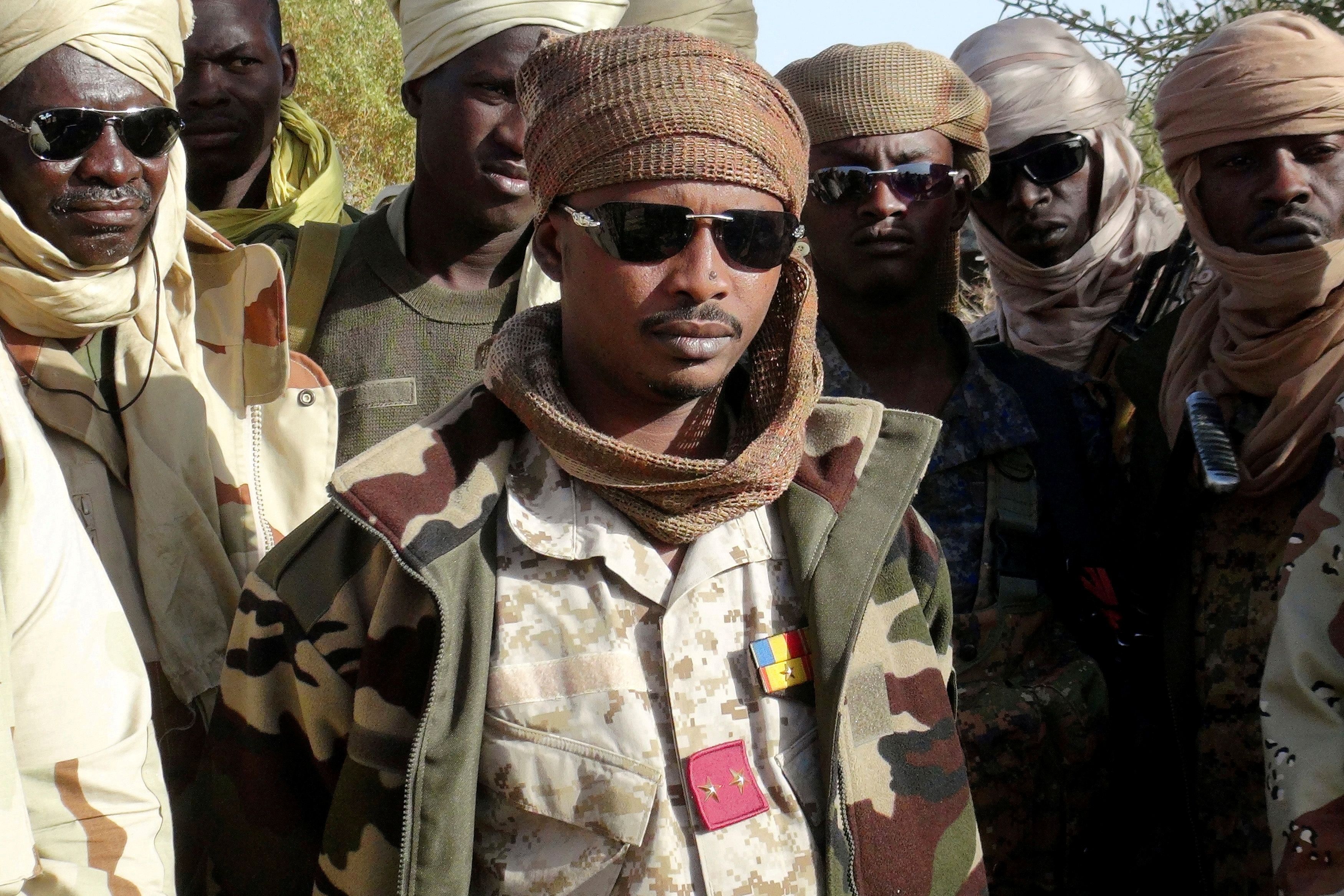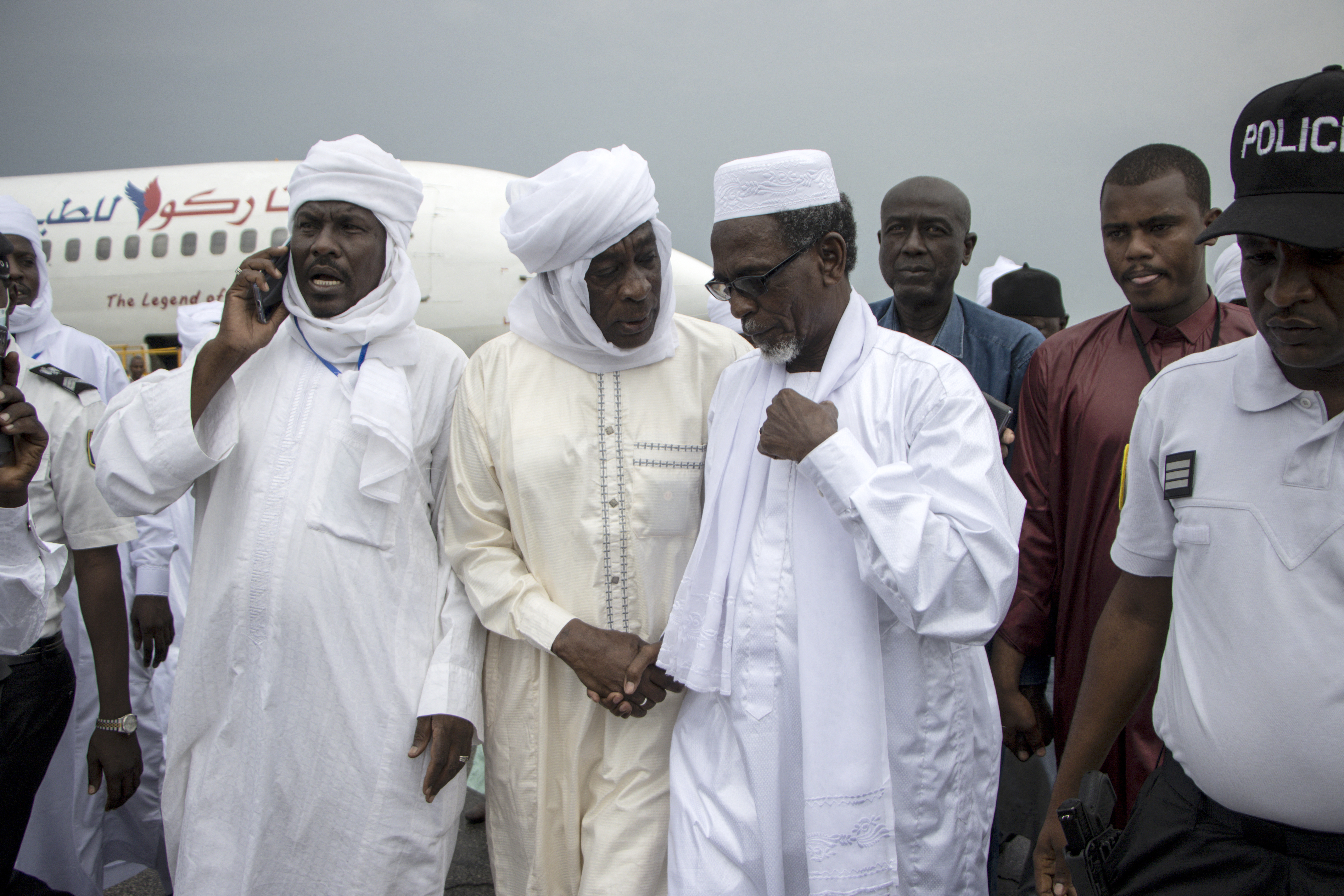
Delayed talks on Chad’s future that the ruling military says are a “decisive moment” opened despite some some opposition groups boycotting the gathering.
More than 1,400 delegates from the military, civil society, opposition parties, trade unions and rebel groups gathered on Saturday in the capital, N’Djamena, for the “national dialogue” that is expected to last three weeks.
The talks are the initiative of army general Mahamat Idriss Deby.
Deby described the forum as a “decisive moment in history of our country” after arriving in military dress surrounded by tight security to open the forum.
Earlier, he inaugurated a statue symbolising national unity at the January 15 palace in the capital before reviewing an honour guard.
Deby took power in April 2021 at the age of just 37 after his father, who ruled for 30 years, was killed during a military operation against rebels.
Deby has said the forum should open the way to “free and democratic” elections after 18 months of rule by his military – a deadline that France, the African Union (AU) and others have urged him to uphold.
But the “dialogue”, which should have begun in February, has been marred by delays as Chad’s myriad rebel groups, meeting in Qatar, squabbled over whether to attend.
In the end, about 40 groups on August 8 signed a deal entailing a ceasefire and guarantees of safe passage on return to Chad.
Secretary-General @antonioguterres congratulates the Chadian transitional authorities and the people of Chad on the opening of the Inclusive and Sovereign National Dialogue planned to start tomorrow.
Full statement: 👇https://t.co/ytl0Czv9nM— UN Spokesperson (@UN_Spokesperson) August 19, 2022
On the agenda for talks are lasting peace, reforming state institutions, and a new constitution that will be put to a referendum.
Deby signed a decree on Wednesday saying decisions taken at the forum will be “legally binding”.
The formal dialogue will begin on Sunday or Monday, said Saleh Kebzabo, a vice president of the forum’s organising committee and one-time opponent of the elder Deby.
AU Commission chief and Chadian Moussa Faki Mahamat will also speak at the talks’ opening.
Reporting from N’Djamena, Al Jazeera’s Hiba Morgan said there were will be various topics tackled.
“They will discuss … the disarmament of armed groups that have signed the peace deal in Doha, but most of all the election and whether armed groups will be allowed to run,” she said.

‘Skewed in advance’
On Thursday, two exiled rebel leaders, Timan Erdimi and Mahamat Nouri, returned to Chad to participate in the forum.
“We signed this agreement to rebuild Chad,” said Erdimi, head of the Union of Resistance Forces (UFR).
Chad, one of the world’s poorest countries, has endured repeated uprisings and unrest since independence in 1960.
The talks face major challenges, according to observers, including time pressure and the fact that two of the biggest rebel groups and a major political alliance are not taking part.
The groups include the Front for Change and Concord in Chad (FACT), which triggered a military offensive in the northeast last year that ended in the elder Deby’s death.
FACT said it considers the talks to be “skewed in advance”.
Wakit Tamma, a large coalition of opposition parties and civil society groups, also refuses to participate, accusing the military of “human rights violations” and of also preparing for Deby’s candidacy as president.
Succes Masra, leader of the Transformers party, part of the Wakit Tamma coalition, on Saturday called for civil resistance at a meeting in N’Djamena attended by several hundred supporters that drew a large police presence.
More than 1,400 delegates are currently participating in the 21-day Inclusive National Dialogue to "turn the page on the transition" in Chad.#DNI#BasketFund #RéconciliationTchad #InclusivitéTchad#PaixauTchad pic.twitter.com/6qvJfQl49K
— ONU Tchad (@OnuTchad) August 20, 2022
Meanwhile, the United Nations chief urged Chad to seize an “historic opportunity” with the upcoming landmark talks to return the country to stability and set a course towards democracy.
UN Secretary-General Antonio Guterres offered congratulations to Chad’s transitional authorities and the country’s people on Friday, and acknowledged “the efforts made by all other stakeholders to reach this historic moment”.
“The secretary-general notes that the dialogue offers a historic opportunity to build new foundations for the stability of Chad, through the consolidation of democracy and good governance,” said Guterres’s deputy spokesperson Farhan Haq.
The UN chief also encouraged the participation of “all segments” of Chadian society, including women and young people, in the dialogue, and urged the political and military groups that have not yet signed the Doha peace agreement to join the process.






